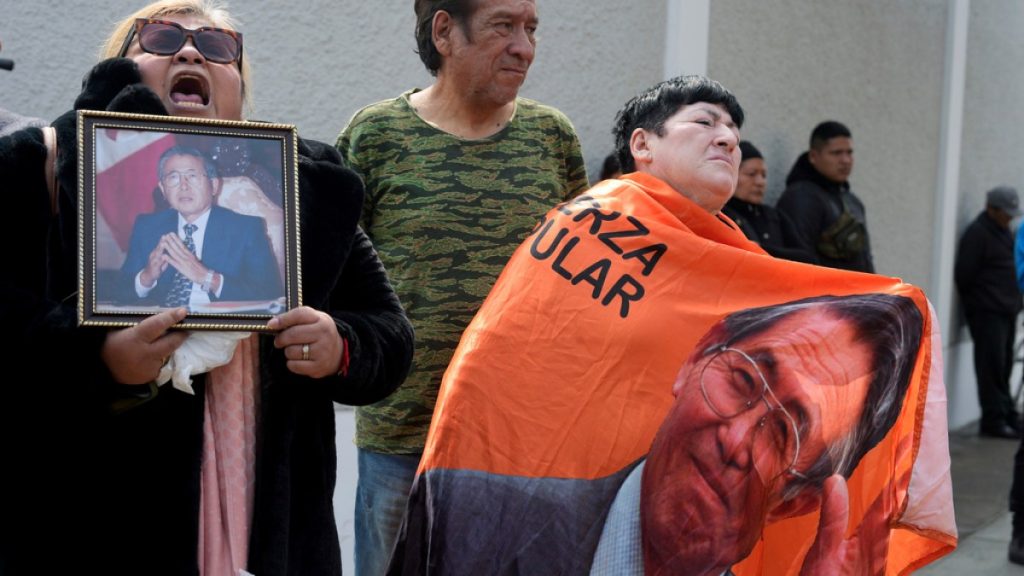The death of former Peruvian President Alberto Fujimori has sparked controversy and division in the country, with his legacy being bitterly contested. Fujimori, convicted of corruption and severe human rights abuses during his time in office, passed away at the home of his daughter in Lima. The government of Peru announced a three-day period of national mourning in his honor, with flags raised at half-mast in the Legislative Palace.
Fujimori’s supporters credit him with stabilizing the economy through harsh neoliberal reforms and defeating the Maoist guerrilla group Sendero Luminoso, or Shining Path, which had caused terror in Peru for years. However, his methods of achieving these goals, including a brutal counterinsurgency campaign and a self-coup in 1992, have been widely criticized. The civil war between the government and rebel groups is said to have resulted in the deaths of at least 70,000 people, with Fujimori’s administration also being accused of implementing forced sterilizations targeting marginalized groups.
After being removed from office in 2000 due to a bribery and corruption scandal involving his intelligence chief, Vladimiro Montesinos, Fujimori went into exile in Japan. He was later detained in Chile in 2005 and extradited to Peru in 2007 to face charges related to human rights abuses during his presidency. Fujimori was convicted in 2009 for crimes connected to death squads that killed 25 people, but he was released from prison in 2023, against the order of the Inter-American Court of Human Rights.
Fujimori’s death coinciding with the anniversary of Shining Path leader Abimael Guzman’s passing has furthered the polarisation surrounding his legacy. His daughter Keiko, a former lawmaker and presidential candidate, had announced earlier in the year that her father would run for president in 2026. The dramatic impact of Fujimori’s rule on Peruvian society continues to be felt, with social media reflecting the ongoing divisions through hashtags like #FujimoriNuncaMas (Fujimori never again) and #FujimoriPorSiempre (Fujimori forever).
Despite the controversy surrounding Fujimori, his death has prompted tributes and condolences from some of his supporters, who credit him with bringing stability to Peru and defeating terrorism. However, his detractors continue to highlight his legacy of corruption, human rights abuses, and authoritarianism, which have left a lasting impact on the country. As Peru observes a period of mourning for its former leader, the debate over Fujimori’s legacy and his place in the nation’s history continues to be fiercely contested.


